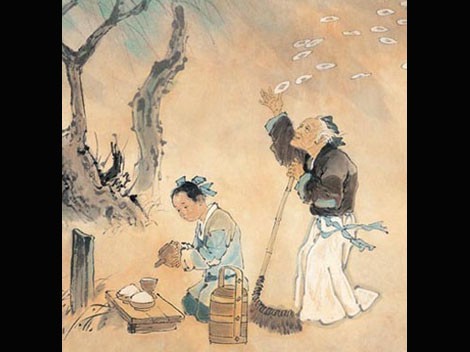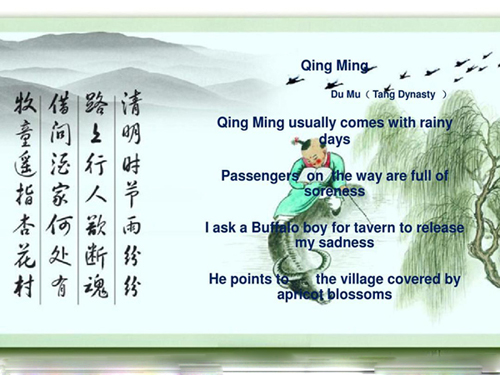
It is a public holiday and an important day for Chinese people. According to holiday arrangements from the State Council of China, all of iAbrasive's staff will have four days' off from April 1 to 4, 2017. iAbrasive team will be on duty on April 5, 2017.

Qingming Festival, also known as Ching Ming Festival or Tomb-Sweeping Day, is a traditional festival and the most important holiday for tomb-sweeping in memory of ancestors in China, which will fall on April 4, 2017.
It is a statutory public holiday and an important day for Chinese people. According to holiday arrangements from General Office of the State Council of China, all of iAbrasive's staff will have four days' off from April 1 to 4, 2017. iAbrasive team will be on duty on April 5, 2017. Sorry for any inconvenience the holiday may cause for you, and wish you happy every day.
According to Chinese traditions and customs, tomb sweeping, taking a spring outing, or flying kites usually happen during Qingming Festival. People love to fly kites during the time, but it is actually not limited to the Qingming Festival. Its uniqueness lies in that people fly kites not during the day, but also at night. When it comes, Chinese people will sweep the tombs, clean the graves and offer food, tea, wine, chopsticks, joss paper, or libations to the ancestors. They may have a spring outing, fly kites and hold other activities during the holiday.
In Chinese history, Qingming Festival is often connected with Jie Zi, who lived in Shanxi province in 600 B.C. and was official loyal to his sovereign. Legend goes that Jie saved his starving lord's life by serving a piece of his own leg. When the lord succeeded in becoming the ruler of a small principality, he invited all his faithful followers but forgot Jie. Many people thought it was unfair for Jie, and advised him to go for reward, but Jie refused, preferring to lead a hermit's life with his mother in the mountains.
The ruler couldn't find Jie after realizing it, and believed that he could force Jie out by burning the mountain, so he ordered his men to set the forest on fire. To his consternation, Jie chose to remain where he was and was burnt to death. To commemorate Jie, the ruler ordered all fires in every home to be put out on the anniversary of Jie's death. Thus began the "cold food " festival, a day when no food could be cooked since no fire could be lit. The "cold food" festival occurs on the eve of Qingming and is often considered as part of the Qingming festival.
As time passes, the Qingming festival replaced the "cold food" festival. Whatever practice is observed, the basic observation of Qingming is to remember one's elders by making a special effort to visit their graves, ashes or ancestral tablets. To make the visit even more meaningful, some time should be spent to remind the younger members of the family of the lives and contributions of their ancestors, and the story of Jie Zi.
